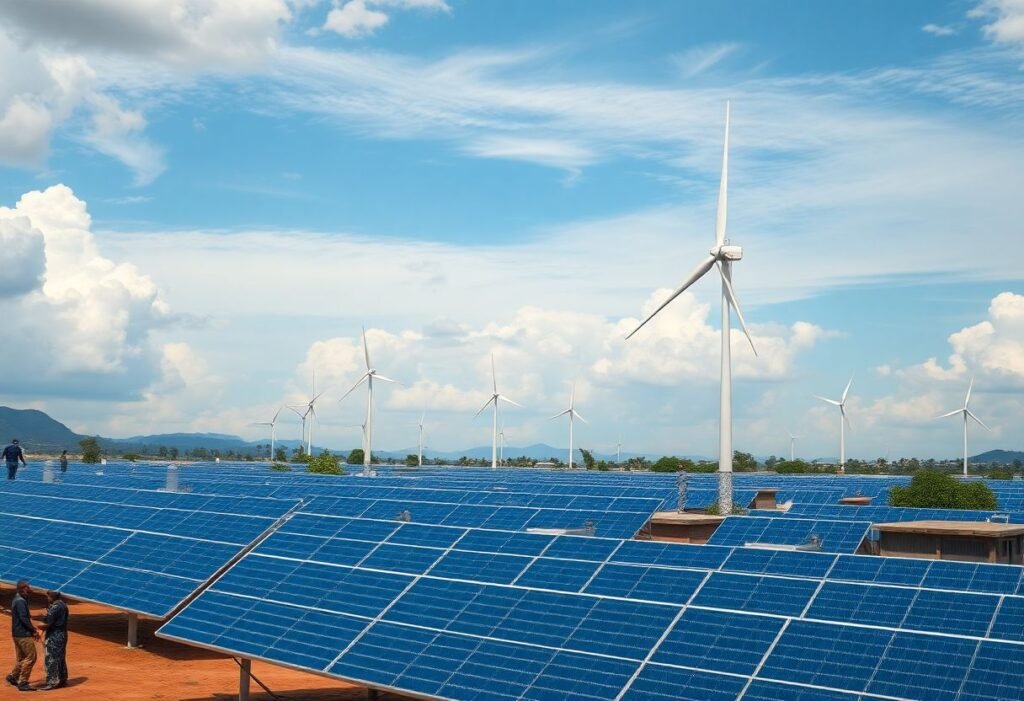The future of renewable energy in developing countries is a crucial aspect of global innovation, as it represents a pathway to sustainable development. Innovations in technology and resource management are paving the way for a cleaner energy transition.
Innovative Technologies Shaping Renewable Energy
Innovations in renewable energy technologies are crucial for developing countries. Solar power systems, such as photovoltaic cells, have become more efficient and affordable, enabling wider adoption. Additionally, wind energy solutions have advanced with new turbine designs that optimize energy production in varying climates. These technological advancements not only reduce dependence on fossil fuels but also foster local industry growth, creating jobs and stimulating economies.
Government Initiatives and Policies
Government policies play a vital role in supporting renewable energy innovation. Many developing nations are implementing incentives such as subsidies and tax breaks for renewable energy projects. These initiatives encourage private investment and innovation, making it easier for startups to enter the clean energy market. For example, countries like India have set ambitious targets for renewable energy production, aiming for over 450 GW by 2030, which showcases a strong commitment to harnessing local resources effectively.
Investment Opportunities in Renewable Energy
Investment in renewable energy in developing countries is witnessing robust growth. International organizations are increasingly recognizing the potential of clean energy initiatives and are providing funding to support these innovations. Projects focused on biomass energy and small-scale solar farms are gaining traction, presenting lucrative opportunities not only for investors but also for communities looking for sustainable development solutions.
Community Engagement and Local Impact
Community involvement is essential for the success of renewable energy initiatives. Engaging local populations in decision-making processes fosters a sense of ownership and responsibility toward energy projects. Education and training programs help empower communities with the knowledge needed to operate and maintain renewable energy systems. These efforts lead to enhanced awareness of environmental sustainability and bolster social cohesion.
Challenges to Overcome for a Renewable Future
Despite the advancements, challenges remain in transitioning to renewable energy sources. Infrastructure deficits, lack of financing, and regulatory hurdles can hinder progress. Addressing these challenges through innovative financial models, such as green bonds and community financing, can significantly enhance the uptake of renewable technologies. Partnerships between governments, NGOs, and the private sector are essential to tackle these issues effectively.
The Role of International Cooperation
International cooperation is critical for fostering innovation in renewable energy. Developed nations have a responsibility to support developing countries through technology transfer and funding mechanisms. Collaborative efforts, such as the Paris Agreement, emphasize the importance of shared knowledge and resources in combating climate change. This partnership will facilitate the transition toward a sustainable and resilient energy future.
Disclaimer: The views expressed are those of the author and do not necessarily reflect the opinions of any organizations discussed.





















